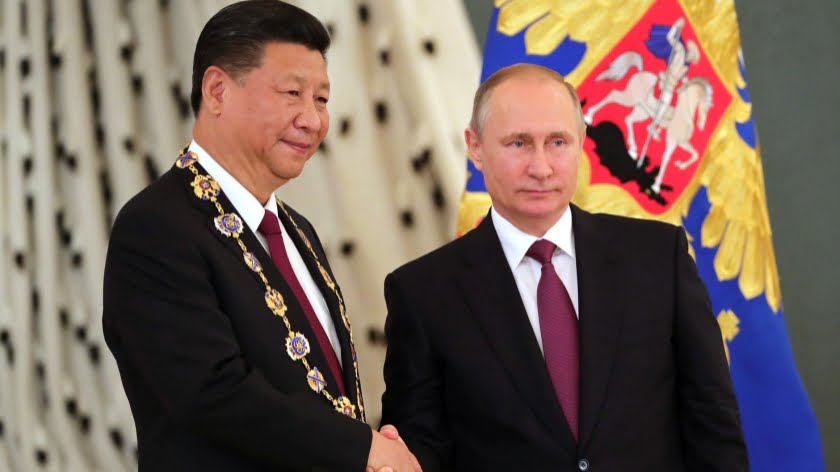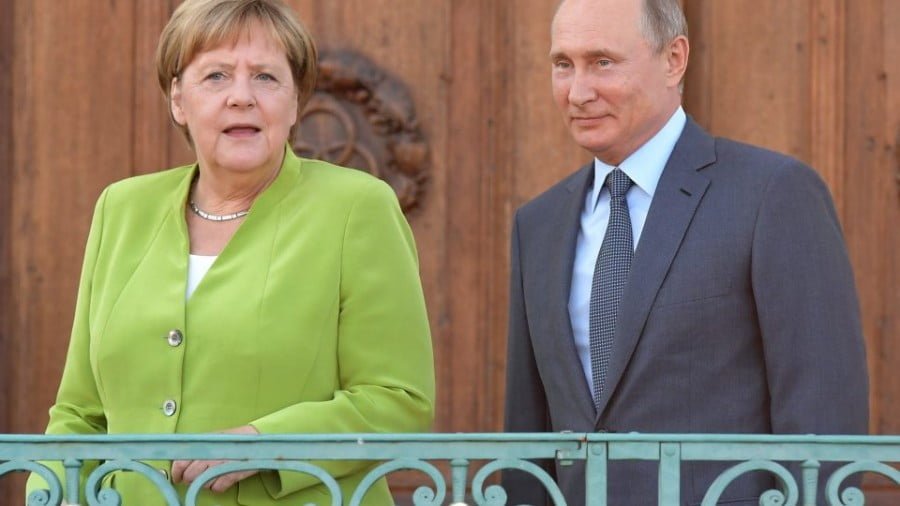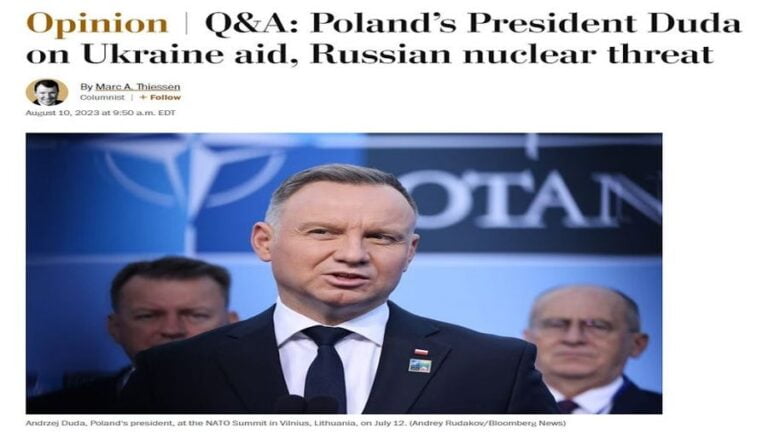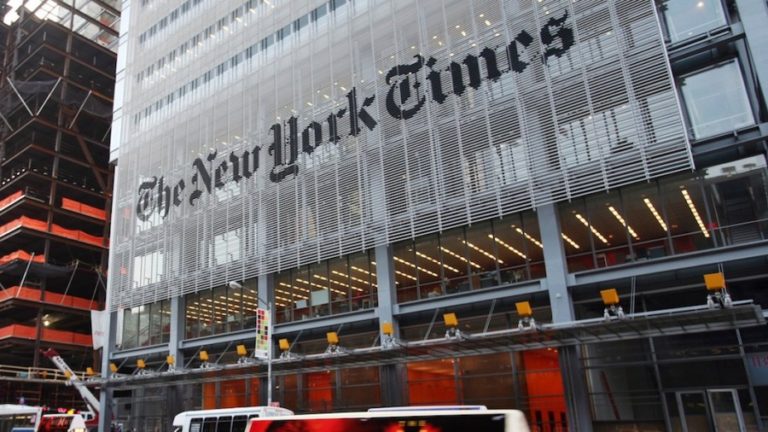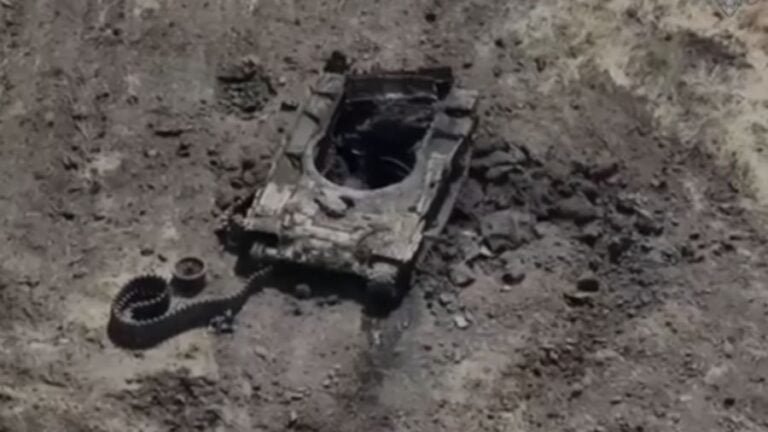Putin’s Spokesman Shared the Hard Truth About Russian-Chinese Economic Relations
President Putin’s spokesman Dmitry Peskov poured cold water all over Alt-Media’s wishful thinking fantasy about Russian-Chinese economic relations during a recent interview with RT’s Sophie Shevardnadze that’s sure to unsettle a lot of their international supporters.
Chinese President Xi is in Russia this week to attend the Saint Petersburg International Economic Forum (SPIEF), during which time he and his Russian counterpart are expected to take their unprecedented strategic partnership to the next level by expanding their Belt & Road Initiative (BRI) cooperation with one another. No objective observer questions the importance of these two Great Powers’ excellent relations for maintaining stability in the emerging Multipolar World Order, but nor should they exaggerate the true state of their ties with one another either. It’s become trendy for some commentators to talk about a so-called “alliance” between the two that they say has seen each of them doing whatever they can to support the other, especially on the economic front, but the fact of the matter is that this is much more of a political fantasy than an actual reality.
The author already wrote about how “The Baikal Water Bottling Scandal Says A Lot About Russian-Chinese Relations” and pointed out the possibility of Russia reaching a “New Detente” with the US at China’s relative expense despite Putin’s wholehearted defense of BRI during the eponymous summit in Beijing in late April, but now Putin’s spokesman Dmitry Peskov officially confirmed that that his country’s economic relations with China aren’t as perfect as Alt-Media presents them as being. Speaking to RT’s Sophie Shevardnadze, he poured a lot of cold water over the wishful thinking of these two Great Powers’ most zealous supporters, injecting some much-needed realism into the discussion that couldn’t have come at a better time for putting their trading ties in the proper context, particularly since he shared his comments just a few days before President Xi’s visit to Russia. What follows is the relevant passages from his interview (emphasis added):
“SS: All right, except American businessmen and investors, there is more to the forum. China’s president is coming and there is a lot of talk about this agreement to synergise One Belt One Road with Russia’s Eurasian Economic Union. It’s going to be a huge infrastructure project and even the Western press… The Hill writes that the sanctions made it possible for China to invest more into Russia, and they are now talking about an Eastern Entente. It has a ring to it. What do you think of it? Are we really in for an Eastern Entente?
DP: Well, of course it’s a very attractive project, and actually it’s kind of philosophy, not just a project. It’s a compilation of huge projects that our Chinese partners have in mind. Russia is not participating directly. Russia is a country that is looking for integration with this project to this or that extent that is compatible with this project. Of course, China is not investing a lot, we cannot say that China is investing a lot in Russian economy, there is still a lot of room for enlarging these volumes of investments from Chinese businesses. So, we do hope that after some time the investments will rise. China is a very close partner with Russia.
And we cooperate successfully, that means that the volume of our trade is constantly rising not depending on the international economic environment.
We had been planning to achieve the goal of $100 billion and it was even higher at the end – $107 billion. If you compare it with the balance between the States and China, it’s quite a humble amount but, nonetheless, for our economy, for the size of our economy, it’s a very significant amount. China is not our partner number one yet. Still, the EU countries are number one for us and I cannot agree with those who say that Russia is turning eastward. No, I hope Russia will never turn eastward. The Russian eagle looks to both sides – to the West and to the East, that’s the nature of every policy of Russia, be it political and diplomatic or economic activities.
SS: Mr. Peskov, I have heard you on many instances say that even though the Chinese are very close partners with Russia, they are often very cautious in relations with Russians and in dealing with Russian businesses. I got to know that Chinese banks are sometimes refusing to serve Russian customers because they are afraid of American sanctions. So when you think about it, does it mean that de facto Russia-China economic relations are dependent on Washington?
DP: Everything is interdependent in this world. None of the countries are free in their moves and their decisions. Every country has to balance and rebalance their activities in the field of economy because we are all interdependent. So that’s why yes, of course, we can feel an influence of American sanctions in our bilateral relationship, but at the same time we are sovereign enough to take those steps which are being considered of extreme importance to us and, of course, the dimension of bilateral economic relations between Russia and China is a very significant dimension for the global economy.
SS: But would you say that Western sanctions against Russia are also taking a toll on how Chinese can invest in Russia, Chinese make business in Russia?
DP: Businessmen are very careful in all the countries, not only in China. Every businessman has to keep in mind all the factors, all the elements that can influence their future. So some Chinese businessmen prefer to be more careful, some of them are more proactive in their activities, some of them are waiting, some of them are building factories, automotive factories, in Russia; and one of those will be inaugurated during the visit of President Xi to Moscow.”
As taken from the above, the key takeaways are that:
* Russia isn’t directly participating in BRI but nevertheless seeks to integrate with it;
* This might explain why China isn’t investing as much in the Russian economy as Moscow expects it to;
* Accordingly, China hasn’t yet replaced the EU as Russia’s number one trading partner;
* Even if it eventually does, Russia refuses to turn eastward but will instead seek to balance East and West;
* And sensing Russia’s lack of geopolitical commitment, some Chinese are now abiding by American sanctions.
Quite understandably, many readers are probably shocked to read these startling facts.
Peskov’s revelations about the true state of Russian-Chinese economic relations deserve some further elaboration, though, since the situation is far from doom and gloom. Trading ties are only one dimension of their strategic partnership, albeit an extremely important one, and they’re trending very well by all metrics. Russia’s reluctance to directly participate in BRI might be because of its desire to ensure that it gets the best deals possible out of its counterpart before doing so, possibly hinting that the Kremlin believes that there might be some truth to the claims that China takes advantage of some countries through so-called “debt traps” and other shady tactics. Should that be the case, and Peskov’s comments surely imply as much regardless of whatever meticulously preplanned deals Russia and China publicize at SPIEF this week, then it can’t be discounted that the US’ Neo-Kissingerian plan to divide and rule Eurasia might eventually see some success.
By Andrew Korybko
Source: Eurasia Future

